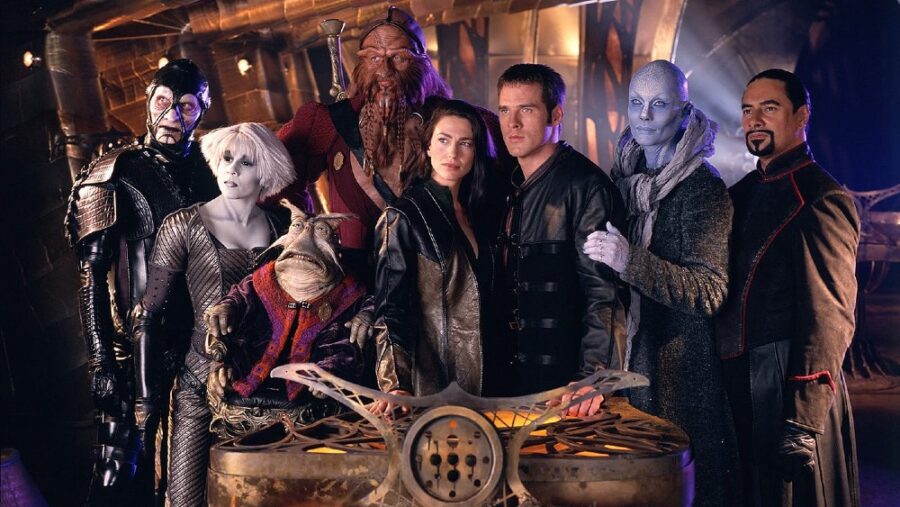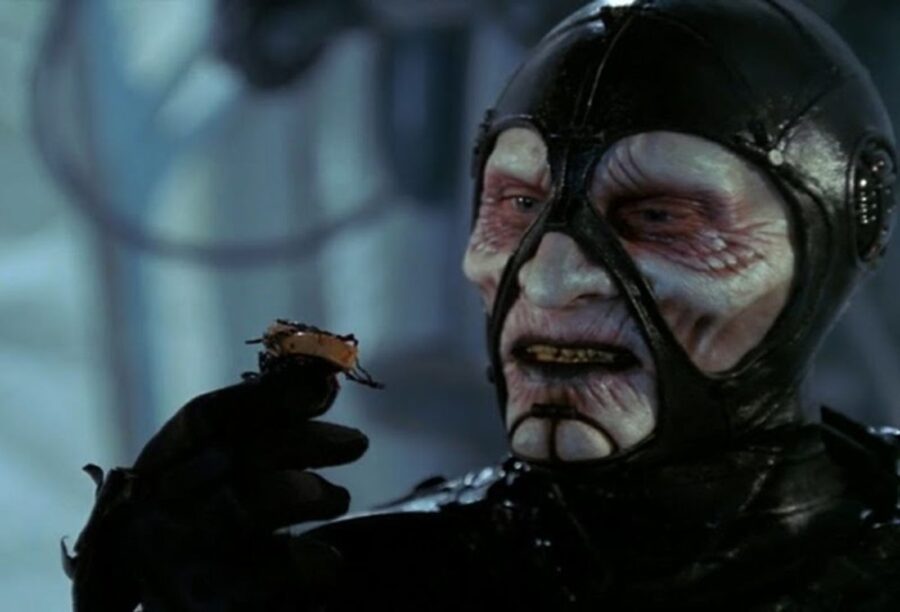Farscape Is The One Sci-Fi Series That Can Never Be Made Again
Farscape, bound by a limited budget, is one of the most creative sci-fi shows in history, and should never be remade.

Hollywood is remaking everything, from Disney’s constant stream of live-action remakes to the fan-favorite sci-fi series Stargate, but one series should never be remade: Farscape. The small-budget series launched in the United States in 1999 on the Sci-Fi Channel and slowly won over fans during its four-season run (spanning 88 episodes) with its ingenious use of animatronics, extensive prosthetics, a plot centered around a military arms race, and one of the greatest villains in television history, Scorpius. Because of the extensive use of puppets and low-budget production, any remake will not have the same spirit as the original, robbing fans of what helped the show become a cult classic.
Farscape starred Ben Browder as John Crichton, a human astronaut that gets sucked into a wormhole and winds up across the galaxy, finding himself in the middle of a conflict between the militaristic Peacekeepers and a rag-tag band of rebels in a living bio-ship called Moya. Crichton accidentally kills a Peacekeeper pilot, causing Bialar Crais, played by Lani Tupu, to swear revenge and spend the first season hunting down the Earther and his new crew of former convicts. The crew, all alien species, required extensive prosthetics and makeup work, with two of the main cast, Pilot and Rygel XVI, being puppets created by Jim Henson’s Creature Shop.
Being a living organism, the Moya immediately gave the show a different look from the sterile nature of Star Trek and Babylon 5. If a studio today wanted to bring back Farscape, they would likely make extensive use of green screens and CGI to accomplish the bio-organic environment, technology that wasn’t widely available with the small budget of the original Hallmark Entertainment production. The technological limitations, instead of limiting the scope of the plot, forced the production to think outside the box, and the result is entire episodes dealing with conflicts within Crichton’s head or finding new levels of political intrigue that don’t require a lot of different sets.
Limitations foster creativity, and Farscape is the best example on television of that being the case. Few shows have handled the concept of “enemies with psychic clones of the other inside their head” better than this one, and really, can you think of another show that’s done something that crazy? And better yet, somehow made it work?
Going beyond the extensive use of puppets, the writing of Farscape captured lightning in a bottle, and it’s most evident through Scorpius, portrayed by the underrated Wayne Pygram, as a malicious villain that’s willing to lie, cheat, steal, murder, and work with his enemies to win. Cold and calculating, Scorpius proudly declares that his intellect makes him dangerous as he pursues Crichton for the secret to the wormhole technology.

To say that the overarching plot of Farscape goes through twists and turns is an understatement, but somehow, most of the cast get a chance to shine and receive resolutions to their character arcs. The follow-up series, Farscape: The Peacekeeper Wars, aired in 2004, two years after the original series was canceled, and wraps up the cliffhanger while potentially setting the stage for a return to the franchise.
Any return that picks up after The Peacekeeper Wars wills struggle to match the frenetic, creative pacing of the original while failing to copy the unique visual style of Farscape. Brian Henson, Jim Henson’s son, and co-creator of the series, talked about bringing back the show in 2018 but acknowledged that it would be an uphill struggle despite the fan support. It’s okay for great shows to stand on their own without a revival, a reunion, or a prequel.
Fans have been clamoring for a Farscape return for years, but look at what happened with The X-Files revival, or even worse, Quantum Leap, for what can go wrong. Enjoy the zany low-budget Farscape that we already have at home, as a big-budget streaming series would not be the same, and in fact, it would be much worse.












